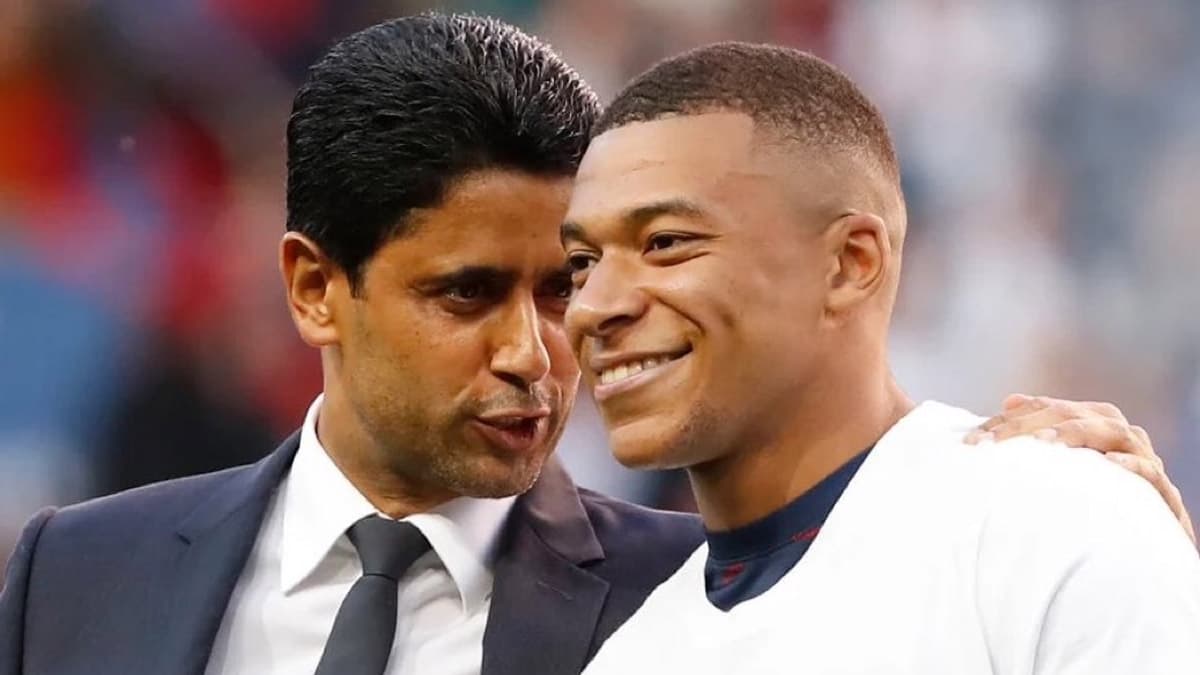
PSG’s Evolving Galaxy: Stars, Strategies, and the Quest for European Glory
Paris Saint-Germain, a club synonymous with ambition, glamour, and the pursuit of football’s highest honours, has undergone a significant metamorphosis in recent seasons. From a squad built around the stratospheric talents of Neymar, Lionel Messi, and Kylian Mbappé, the Parisian giants are now forging a new identity, one that emphasizes collective strength, tactical discipline, and the nurturing of emerging talent. This shift, while retaining an underlying star power, reflects a strategic pivot aimed at achieving the elusive Champions League crown, not just through individual brilliance, but through a cohesive, sustainable team unit.
This article delves into the latest news surrounding PSG’s most prominent figures, examining their current roles, challenges, and contributions to the club’s evolving narrative.
Kylian Mbappé: The Last Titan and the Looming Departure
Undoubtedly, the most dominant and consistently newsworthy figure at PSG remains Kylian Mbappé. For years, the French superstar has been the club’s undisputed talisman, a goal-scoring machine whose blistering pace, clinical finishing, and unparalleled dribbling ability have lit up Parc des Princes. However, his story at PSG is now entering its final, most dramatic chapter.
The saga of Mbappé’s contract and his long-rumoured move to Real Madrid has been a recurring soap opera in European football. As the 2023-2024 season progressed, it became increasingly clear that the star forward would not be extending his stay beyond June 2024. Reports from multiple credible sources confirmed his decision to leave as a free agent, bringing an end to seven tumultuous, yet incredibly successful, years in Paris.
On the pitch, Mbappé’s performance remained largely undimmed, even amidst the swirling speculation. He continued to be PSG’s primary goal threat, often single-handedly deciding matches with moments of individual brilliance. Under coach Luis Enrique, Mbappé’s role sometimes varied, occasionally featuring as a central striker, other times drifting wide. Enrique’s willingness to substitute Mbappé in some league games, particularly in the latter half of the season, was interpreted by some as a strategic move to prepare the team for life without its biggest star, or perhaps to manage his minutes for crucial Champions League encounters. Regardless, Mbappé’s commitment, at least in terms of effort and output, rarely wavered. His leadership, though sometimes questioned in the past due to his youth, grew as he matured, becoming the de facto captain on the field for much of his tenure.
The imminent departure of Mbappé represents a colossal void for PSG to fill, both in terms of goals and global appeal. His exit marks the definitive end of the "superstar trident" era, forcing the club to double down on its new collective philosophy. The challenge for PSG will be to redistribute his immense goal contributions across the squad and to maintain their competitive edge in Europe without their primary offensive weapon.
The Post-Neymar and Messi Era: A Shift in Philosophy
The departures of Neymar Jr. (to Al-Hilal) and Lionel Messi (to Inter Miami) in the summer of 2023 were watershed moments for PSG. While both players brought unparalleled individual brilliance and global marketing power, their presence also arguably created a tactical imbalance and, at times, a perceived lack of collective unity.
With their exits, PSG under Luis Enrique has embraced a more fluid, less star-dependent system. This transition has allowed other players to step into the limelight and for the team’s tactical identity to become more defined. The focus has shifted from individual moments of magic to sustained possession, intelligent pressing, and coordinated attacking movements. This new approach aims to foster a stronger team spirit and a more resilient tactical structure, particularly in the demanding environment of the Champions League.
New Signings and Their Impact: Building a Cohesive Unit
The summer of 2023 saw a flurry of shrewd signings, reflecting the club’s new strategic direction. These players were brought in not just for their individual quality, but for their suitability to Luis Enrique’s system and their potential to contribute to a more balanced squad.
Ousmane Dembélé, acquired from Barcelona, has been a key figure in the new attacking setup. His electrifying pace, exceptional dribbling, and ability to play on either wing or even centrally have made him a constant threat. While his finishing can still be inconsistent, Dembélé’s creative output and ability to stretch defenses have been invaluable, providing the width and directness that the team sometimes lacked. His partnership with Mbappé, brief as it was, showed flashes of immense potential.
In midfield, Manuel Ugarte (from Sporting CP) quickly established himself as a vital defensive anchor. His relentless ball-winning, tactical intelligence, and tireless energy provided a crucial shield for the defense, allowing more creative midfielders to push forward. While his initial impact was immense, he faced stiff competition for minutes as the season progressed, highlighting the squad depth.
The arrivals of defenders like Lucas Hernandez (from Bayern Munich) and Milan Škriniar (from Inter Milan) significantly bolstered PSG’s backline. Hernandez, a versatile defender capable of playing at left-back or centre-back, brought aggression, experience, and a winning mentality. Škriniar, though experiencing an injury-interrupted first season, offered a solid, no-nonsense presence at the heart of the defense.
Upfront, Randal Kolo Muani (from Eintracht Frankfurt) and Gonçalo Ramos (from Benfica) were brought in to provide diverse attacking options. Kolo Muani’s work rate, aerial prowess, and ability to link up play made him a valuable asset, while Ramos offered a more traditional centre-forward profile, known for his predatory instincts in the box. Both players faced the challenge of adapting to a new league and system, and their contributions were often overshadowed by Mbappé, but they represent the future of PSG’s attack.
Young winger Bradley Barcola, acquired from Lyon, emerged as one of the most exciting prospects. His directness, dribbling skills, and growing maturity saw him earn significant minutes and even start in crucial Champions League games, demonstrating the club’s commitment to developing and trusting young talent.
Emerging Talents: The Future Core
Beyond the established stars and new signings, PSG has increasingly relied on its own academy products and promising young talents, a testament to Luis Enrique’s philosophy and the club’s long-term vision.
Warren Zaïre-Emery is arguably the brightest star among them. At just 18, the midfielder has displayed remarkable maturity, tactical awareness, and physical prowess beyond his years. He quickly became an indispensable part of the midfield, showcasing his ability to break up play, drive forward with the ball, and even contribute goals. His rapid ascent has seen him earn call-ups to the French national team, solidifying his status as one of Europe’s most exciting young talents and a future captain of PSG.
Other promising youngsters like Vitinha and Lee Kang-in have also seen their roles expand. Vitinha, while not an academy product, has blossomed into a technically gifted and intelligent midfielder, capable of controlling the tempo of games and providing incisive passes. Lee Kang-in, with his silky dribbling and creative flair, has added another dimension to the attacking midfield, proving to be a valuable asset with his versatility and ability to unlock defenses.
Defensive Pillars and Goalkeeping: Consistency and Leadership
The defensive unit, while less glamorous than the attacking stars, remains the bedrock of any successful team.
Marquinhos, the club captain, continues to be a rock at the heart of the defense. His leadership, aerial dominance, and tactical intelligence are invaluable. Despite facing competition and occasional injury setbacks, he remains a consistent performer and a crucial figure in the dressing room.
In goal, Gianluigi Donnarumma has largely solidified his position as the undisputed number one. His shot-stopping ability and commanding presence are undeniable, though he has occasionally faced scrutiny for his distribution and decision-making under pressure. Nevertheless, he remains a top-tier goalkeeper whose saves often prove decisive.
Achraf Hakimi, the attacking right-back, continues to be a vital outlet on the flank. His blistering pace and ability to contribute in attack are well-known, though his defensive responsibilities have been more emphasized under Enrique, requiring him to balance his attacking forays with disciplined defending.
Luis Enrique’s Vision: The Architect of the New PSG
The appointment of Luis Enrique as head coach marked a clear strategic shift. The Spanish tactician, known for his demanding style, tactical flexibility, and emphasis on collective play, was brought in to instill a new identity. His reign has been characterized by:
- Tactical Versatility: PSG has regularly switched formations and player roles, keeping opponents guessing. Enrique demands high pressing, quick transitions, and intelligent movement off the ball.
- Squad Rotation: He has not shied away from rotating his squad, giving opportunities to a wide range of players and managing minutes effectively, particularly in the domestic league to keep players fresh for the Champions League.
- Emphasis on Collective: His philosophy prioritizes the team over individual stars, fostering a more egalitarian dressing room and demanding work rate from everyone, including the most prominent players.
- Youth Integration: Enrique has shown a clear willingness to trust and develop young talents like Zaïre-Emery and Barcola, giving them significant minutes in crucial matches.
Enrique’s biggest challenge, and the ultimate test of his vision, remains the Champions League. While domestic dominance in Ligue 1 is expected, the true measure of PSG’s evolution under his guidance will be their performance on the European stage, especially in the post-Mbappé era.
The Road Ahead: Challenges and Aspirations
As PSG moves into a future without Kylian Mbappé, the club faces a pivotal moment. The immediate challenge will be to find solutions for the immense goal-scoring output he provided. This will likely involve a collective effort from the likes of Kolo Muani, Ramos, Dembélé, and the emerging talents.
The strategic shift towards a more balanced, collective team is a commendable one, offering the promise of greater tactical stability and resilience. The financial relief from Mbappé’s departure will also allow PSG to further invest in reinforcing key positions, adhering to Financial Fair Play regulations, and continuing to build a squad tailored to Luis Enrique’s vision.
The ultimate aspiration remains the Champions League trophy. While the departure of a generational talent like Mbappé might seem like a setback, it also presents an opportunity for PSG to truly define itself as a cohesive unit, capable of winning Europe’s most prestigious club competition through collective strength, tactical mastery, and the burgeoning talent of its new generation of stars. The "galactic" era built on individual brilliance might be fading, but a new, potentially more enduring, constellation is forming in Paris. The world will be watching to see if this evolving galaxy can finally achieve its celestial ambition.



